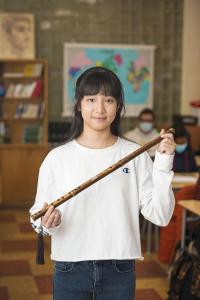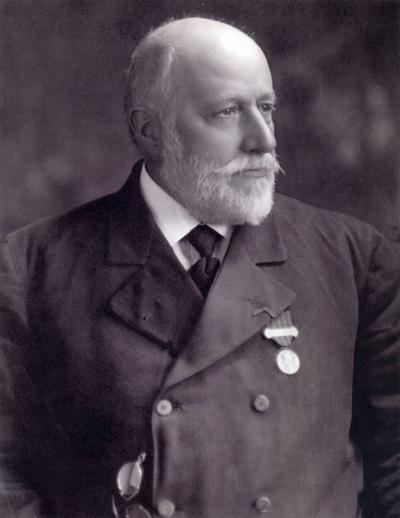The Chinese immigrant population in Montréal has increased dramatically over the past two decades. In 2016, it accounted for 5.1% of recent immigrants to the city.
siyan_zhuo.jpg

In the early 1990s, most Chinese immigrants to Montréal were educated professionals. They generally belonged to one of two groups that left the country for different reasons. Those who left mainland China, which was beginning to open up after decades of relative isolation, wanted to explore the Western world. Curious about what lay beyond their borders, young Chinese immigrated to Québec in search of opportunities. They brought with them cultural and intellectual values that they passed on to their children, who grew up in Montréal. By contrast, those who left Hong Kong did so out of fear of political and financial instability prior to Hong Kong’s handover to the Chinese government in 1997. Years of contact with Western culture made it easier for this group of educated professionals to integrate into Québec society.
Since the 1980s, China has experienced strong economic growth, and Québec has sought to attract a new class of Chinese immigrants: immigrant investors. Immigrants in this category, which has grown significantly since the 2000s, come in the hope of building on successful careers in China and have the means to invest in Québec society. They do so through professional partnerships with local organizations and by developing local business networks. Some also come to offer their children an alternative to the intense competition of the Chinese education system, enabling them to pursue a Western education instead; these young people, often referred to as up straddling the two cultures. Other Chinese newcomers arrive as university students and settle in Montréal with a Québec degree in hand.
Solidarity in the face of immigration challenges
Service à la famille chinoise du Grand Montréal

for support and guidance. Its social workers help with essentials, such as finding work, housing, and schools. The organization also assists people in navigating Québec’s bureaucracy and handles cases that are complicated by the language barrier. Newcomers who speak neither French nor English are often targets for exploitation and discrimination. They may be taken to court by a landlord, bullied at work, or injured in the workplace without knowing their rights. These cases are especially complex to manage because they require coordination between the clients, the organization, the provincial government, and the place of work or residence.
The stresses of immigration can be overwhelming for families. After a few years in Québec, some find themselves in a precarious financial situation, having spent most of the savings they brought from China but lacking the language skills to access stable employment. Guiying Wang, a social worker, explains that when families experience greater financial stress in Canada than they did in China, the resulting strain can lead to family and spousal violence. In such situations, many are shocked to learn that government agencies can remove their children from their care, as family separation is unthinkable in China. Over the years, the organization has often acted as an intermediary between families and the police or youth protection services following violent incidents. It has also fought to have children at risk of family separation remain with their parents, while providing these parents with employability training and domestic violence prevention services.
Public services demystified
In China, extended family and the community are the first line of support for everyday needs. Everyone lends a hand to look after children and the elderly, guide new parents, settle disputes, and help those searching for jobs and housing. Many immigrants, finding themselves cut off from this support network, struggle to adapt to the more individualistic culture of their new country. As a result, one of the Chinese Family Service’s most popular offerings is its workshop on CLSCs and public services in Québec. Every year, hundreds of immigrants fill a large conference room to learn about these services, which they are accustomed to receiving from their families and communities in China. Some have been in Québec for decades but have lacked the language skills to learn about and access services. The positive response to this program reflects the need for support from public institutions to ensure that all immigrants can thrive in their new life in Québec.
自1990年以来,来自中国的移民大都是受过良好教育的专业人士,他们来到蒙特利尔的目的是为了寻求新的机会。从2000年开始,随着中国经济蓬勃发展,魁北克开始接受有能力在该省投资并为其子女提供西方教育的企业家投资移民。
「 1.5代」一词是指在青少年时期之前就移民到魁北克的华裔儿童。大多数人首先会上欢迎班学习法语和认识魁北克文化。他们很快就融入了一个压力比中国小的教育系统。然而,因为父母要努力工作养家或有感必须融入主流文化,这些年轻人与父母相处的时间很少,造成他们逐渐偏离了自己的文化。到了成年,这过渡性的一代便会身兼两种文化。
—
La traduction en chinois simplifié a été faite par Serena Xiong (熊吟) et révisé par Philippe Liu (刘秦宁).
自1990年代以來,在中國出生的移民大都是受過教育的專業人士,他們到來尋求機會。從2000年代開始,隨著中國經濟蓬勃發展,魁北克開始歡迎有能力投資在該省並為其子女提供西方教育的企業家。
「 1.5代」一詞是指在青少年時期之前移民到魁北克的華裔兒童。大多數人首先會上歡迎班學習法語和認識魁北克文化。他們很快就融入了一個壓力比中國少的教育系統。然而,因為父母要努力工作養家或有感必須融入主流文化,這些年輕人與父母相處的時間很少,造成他們逐漸偏離自己的文化。到了成年,這過渡性一代故此身兼兩種文化。
—
Traductrice : Wai Yin Kwok.
Bonjour, tout le monde! Je suis Siyan, j’ai 15 ans et je viens de Chine. Je suis à Montréal depuis un an. Aujourd’hui, je vais vous présenter mon trésor de famille. Mon trésor de famille est un instrument de musique. Son nom est zhudi. C’est une flûte en bambou. Le zhudi est un instrument de musique national des habitants Hans, en Chine. Il existe depuis plus de 4000 ans. Mon zhudi vient de mes grands-parents. Ils ont toujours joué de ce bel instrument d’origine très ancienne.
Chaque zhudi a un majeur fixe et on compte 6, 7 ou 12 flûtes dans chaque ensemble de zhudi, parce que les flûtes, dans différents majeurs, jouent le même son, et ils sont tous différents. Habituellement, le zhudi a un trou de soufflage et un trou de membrane. Ce dernier doit être bloqué avec une membrane de bambou très fine. Bien sûr, il y a six trous sonores de pression, deux trous sonores de base et deux trous sonores auxiliaires.
À l’été 2019, ma mère m’a soudainement offert le zhudi de ses parents. Elle m’a dit : « Tu disais que tu voulais apprendre à jouer d’un instrument de musique classique chinois. Que penses-tu du zhudi? » Comme je voulais surtout connaître les instruments à vent, je l’ai accepté avec joie. Immédiatement, ma mère a ajouté : « Mais tu dois apprendre par toi-même. » Je me suis dit : « Ce ne sera pas si difficile de jouer de la flûte! » Donc j’ai accepté d’apprendre à jouer du zhudi par moi-même.
Mais je me suis trompée. Très vite, j’ai compris que jouer du zhudi, c’est vraiment très difficile. Au début, je ne savais pas coller la membrane, donc je ne pouvais pas en jouer. Et même si j’arrivais à bien placer la membrane au bon endroit, le son du zhudi n’était pas juste. Plus tard, j’ai découvert que j’avais utilisé la mauvaise méthode. J’ai regardé beaucoup de vidéos pédagogiques. C’était un travail très exigeant, mais je n’ai pas abandonné. Je trouve cela toujours intéressant d’apprendre selon les instructions des vidéos pédagogiques. Je pratique encore aujourd’hui et je progresse lentement.
C’est devenu mon instrument préféré. Mes grands-parents sont très fiers de moi. C’est pour cela que j’ai l’intention de garder pour toujours ce bel instrument. C’est mon trésor de famille.
Merci
Siyan, née à Guangzhou en Chine, école secondaire Paul-Gérin-Lajoie-d'Outremont
Ville de Montréal. Coup d’œil sur les immigrants nés en Chine. 2019.
http://ville.montreal.qc.ca/pls/portal/docs/PAGE/MTL_STATS_FR/MEDIA/DOCU...



